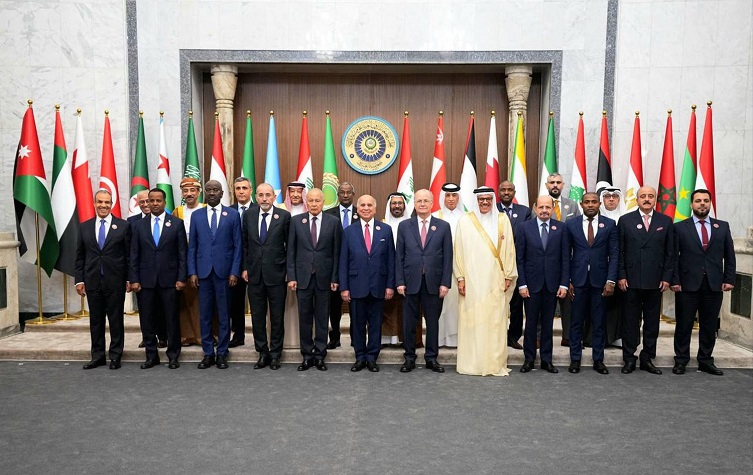Yazidis Urge Arab League to Prioritize Justice for Genocide Survivors
BAGHDAD— As Iraq hosted the 34th Arab League Summit this week, Yazda, a global advocacy organization representing Yazidi survivors, issued a direct and urgent appeal to Arab leaders: place justice, accountability, and the protection of minority rights at the heart of the regional agenda.
In a detailed statement released during the summit, Yazda emphasized that regional coordination is critical to address the transnational nature of the crimes committed by “the so-called Islamic State in Iraq and the Levant (ISIL)”, and to ensure recovery for the thousands of survivors who continue to live with the consequences of the atrocities.
“For over a decade, Yazidis and other minority groups have endured grave atrocities at the hands of ISIL,” the organization stated. “Thousands of Yazidis are still missing—many of them women and children abducted by ISIL and trafficked across borders into Syria and Turkey. Because ISIL’s crimes transcended national borders, achieving justice requires regional coordination and collective action.”
The Iraqi government has made significant, though incomplete, strides toward justice. These include the passage of the Yazidi Survivors Law, efforts to exhume mass graves, and the repatriation of remains to victims’ families. Yazda hailed these steps as “critical progress in transitional justice,” pointing out that Iraq’s experience offers important lessons for neighboring countries—particularly Syria—as they navigate post-conflict recovery. Still, it warns that important gaps remain and that a unified regional response is urgently needed. The organization is calling for the establishment of a joint Iraqi-Syrian mechanism—supported by the Arab League and international partners—to locate and rescue Yazidis and others who remain missing, many of whom were trafficked beyond Iraq’s borders. Yazda proposes this mechanism operate in coordination with the International Commission on Missing Persons (ICMP) to increase its efficacy.

Furthermore, the Yazidi advocacy organization stresses the importance of ensuring Yazidi participation in transitional justice processes related to Syria, noting that the voices of survivors must shape policies and legal mechanisms that aim to address past atrocities. Without cross-border cooperation and survivor input, the organization warns, justice risks being delayed or denied altogether.
In addressing impunity, Yazda advocates for coordinated prosecutions of ISIL members across the region. Such efforts, it says, should be grounded in harmonized legal frameworks and built upon shared evidence in order to effectively pursue charges such as genocide, crimes against humanity, and war crimes.
Beyond prosecution, the organization is also calling for broad-based reform to protect minorities across the Arab world. Yazda urges Arab governments to adopt and implement comprehensive minority rights protections, warning that the lack of such safeguards has historically enabled patterns of discrimination and violence.
Finally, Yazda is appealing for formal recognition of the Yazidi genocide in Syria and a regional commitment to inclusive, survivor-centered recovery and reparations efforts. Recognition, it argues, is not merely symbolic—it is foundational to healing and to preventing future atrocities.
“Justice must not stop at national borders,” the organization declared. “Regional coordination, survivor participation, and international solidarity are essential to uncover the truth and restore dignity to those who suffered ISIL’s brutal crimes.”
The summit, held in Baghdad for the first time in over a decade, is being watched closely by observers across the region who see it as a rare opportunity to redefine the Arab League’s role in post-conflict justice and minority protection. Yazda urged leaders not to let that opportunity slip away. “The Arab League has a responsibility to act,” the statement concluded. “Justice, accountability, and non-repetition must become a shared regional mission—rooted in cooperation, backed by law, and led by the voices of survivors.”
The Yazidis, an ethno-religious minority primarily residing in northern Iraq, suffered a brutal campaign of genocide at the hands of the Islamic State beginning in 2014. Thousands were killed, and many women and children were subjected to abduction and enslavement. Despite the passage of time, the community continues to grapple with the aftermath, including the search for missing persons and the preservation of mass grave sites.
Yazda’s call to action emphasized the need for Arab nations to support comprehensive legal frameworks that address genocide, crimes against humanity, and war crimes. The organization highlighted the importance of collaborative efforts between federal, regional, and international bodies to ensure coordinated and impactful actions.
In response to such appeals, the Iraqi government has reaffirmed its commitment to justice for the Yazidi community. Prime Minister Mohammed Shia Al-Sudani recently stated that the government would continue working to ensure equality for all Iraqis and acknowledged the “unimaginable crimes” endured by the Yazidis under Islamic State.
However, challenges remain. The Yazidi community has expressed concerns over legislative developments, such as the amendment to Iraq’s General Amnesty Law No. 27 of 2016. While the amendment explicitly excludes individuals involved in terrorism and violent acts from receiving amnesty, Yazidi leaders worry about the potential for political deals that could undermine justice for victims.
International organizations have also weighed in. UN Women, during the Sixth Lalish Conference, reiterated its commitment to Yazidi survivors, emphasizing the importance of providing sustained assistance and improving social norms to advance the reintegration process of survivors.
As the Arab League Summit concludes, the Yazidi community and their advocates hope that their calls for justice will translate into concrete actions, ensuring that the atrocities they endured are neither forgotten nor repeated.
























